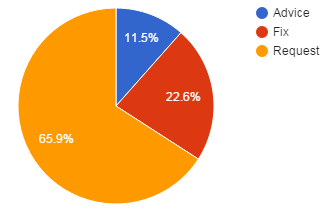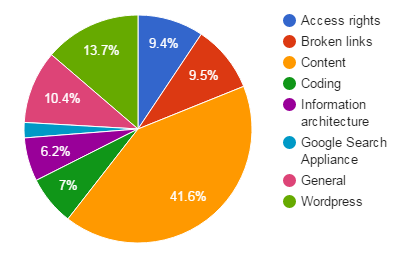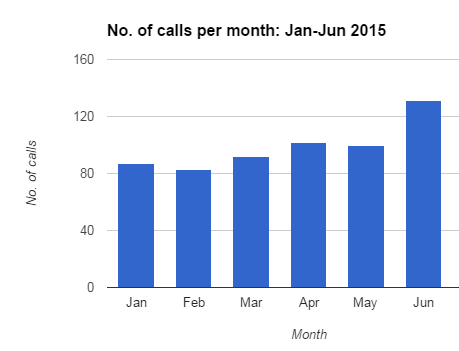Audit of support calls
Earlier this month my colleague Duncan and I conducted an extensive audit of our support calls from January to July 2015. Over these six months there was exactly 600 support calls, which we split up into three main categories: advice, fix and request.
We then went further and sorted each call into a more defined sub-category; such as: WordPress, coding, content and access rights. This allowed us to see which problems were encountered the most and how we might prevent the same issues from arising in the future.
Below you can see the type of calls we received and how we categorised them:
As you can see the majority of calls we received were requests, most of them being content related.
This is something we want to minimise, as most content requests are extremely simple and could be completed by the user.
Here you can also see how many calls we received per month:
As we expected, the quantity of calls slowly increases as the year goes on, until it reaches a peak at around June – July. This is due to the academic year finishing at the start of June, when a lot of academic and support staff have more time to contact us for changes to their webpages.
Below is a greater breakdown of the calls we received by category
Advice:

Fix:

Request:

There is of course a cost associated with each support call that we receive, so solving the problem at the source would not only be beneficial for the user but for us too.
The first thing we aim to do is increase the number and quality of our training materials available to users of T4 and the various other apps that we use (such as WordPress or Google Analytics).
We are also considering reintroducing our ‘Digital drop-in’ day, where once a week users can come by our office for a face-to-face chat about their issue.
Once we have increased the skills of the users within T4 we should see a drop in simple and mundane content requests. Giving us more time to work on important development work.
We are planning on running an audit of our support calls on a bi-annual basis, so hopefully the next time we report on this we’ve improved some of our statistics.


